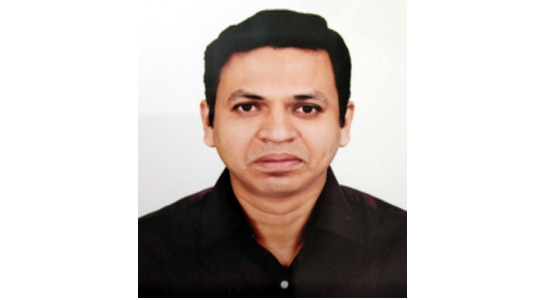News Flash

By Borun Kumar Dash and Abdur Rouf
DHAKA, Nov 22, 2025 (BSS) – Overseas training is essential for modernizing medical science, but government doctors face regulatory restrictions when attempting to travel abroad at their own expense, which has become a major obstacle to the advancement of the country’s healthcare sector.
Professor Dr. Nadim Ahmed of the Surgery Department at Dhaka Medical College Hospital (DMCH) expressed these views in an interview with BSS.
He said, “When a government doctor wants to pursue advanced training overseas at their own expense, they face numerous administrative hurdles. Government orders state that one can only go abroad for training if foreign funding is available. But why would countries like the USA, UK, or Singapore offer training free of charge?”
Dr. Nadim added that doctors typically fund their own overseas training, learn new techniques, and then apply them back home, benefiting the country.
“For instance, laparoscopic surgeries cost Taka 3 to 4 lakh abroad, whereas in our government hospitals, they can be performed at minimal cost. It is because doctors learn these skills abroad that patients receive such services, saving a significant amount of foreign currency,” he said.
Hence, he appealed to the government to simplify the process of going abroad for training, even at personal expense.
He noted that Bangladesh has progressed significantly in healthcare, performing complex surgeries such as kidney transplants domestically. However, in some advanced technologies like robotic surgery, the country lags slightly, he said, adding that the good news is that Bangladesh Medical University (BMU) and some private hospitals have introduced robotic surgery.
Regarding transplant surgeries, Dr. Nadim highlighted certain legal and infrastructural limitations: “Currently, only a relative can donate organs in our country, which is strictly enforced. In advanced countries, complex and costly surgeries primarily happen in the private sector because creating and managing the necessary infrastructure is extremely expensive.”
“Since the government aims to provide primary healthcare to the public at minimal or no cost, it alone cannot bear the huge expense of advanced surgeries. In this case, private sector participation is essential alongside government initiatives.”
Highlighting the patient load at DMCH, he said, “Our surgery department has only 250 beds, yet patient admission never falls below 400. We do not turn away patients because many cannot afford to seek care elsewhere.”
However, he pointed out that catering to such a large number of patients limits quality education for medical students and research opportunities for doctors.
He proposed a clear solution: “Medical colleges should be divided into two types: a ‘service hospital’ for general patient care and an ‘academic hospital’ where complex patients are treated alongside opportunities for student and doctor training and research. Medical science is constantly evolving, so regular training for doctors is indispensable to keep up with new technologies.”
When asked whether public confidence in domestic healthcare has returned, Dr. Nadim said, “Previously, many patients went to India or Singapore. This trend was more influenced by marketing or tourism than quality of care. Now, this trend has decreased. Even senior government officials, secretaries, and joint secretaries now receive treatment in the country, reflecting trust in our healthcare system. However, for highly advanced procedures like liver transplants, further infrastructural development and skilled manpower are still needed,” he said.
On the availability of surgeons, he noted that the bigger problem is not the number of surgeons at district levels but their uneven distribution, alongside the shortage of anesthetists and necessary support.
“For example, even if Manikganj Medical College increases its bed capacity, the absence of anesthetists prevents a surgeon from performing even minor surgeries, forcing patients to be referred to Dhaka,” he said.
Therefore, appointing surgeons at district and sub-district levels alone is not enough; anesthetists, trained nurses, and modern OT facilities are also required, he said.
Expressing concern over doctors’ safety and work environment, he said, “It is impossible for doctors to save every critically ill patient. However, when a patient dies, hospitals are often vandalized and doctors are attacked. Sometimes, doctors are sent to jail without investigation or trial, causing severe psychological distress. This insecurity, combined with the lack of salary structure in private jobs, forces many talented doctors to leave the country, which is a major loss for the nation.”
Regarding surgical incidents such as leaving gauze or instruments inside the body, Dr. Nadim said, “Strict adherence to WHO checklists and guidelines can reduce such errors to nearly zero. Before, during, and after surgery, surgeons, anesthetists, and nurses must coordinate using checklists. Nurses are specifically responsible for keeping track of gauze and instruments.”
Failure to follow this protocol is a serious offense. In advanced countries, hospitals use radio-opaque gauze or surgical sponges and perform post-op X-rays to ensure nothing remains inside the patient. With proper awareness and infrastructural development in Bangladesh, these problems can be avoided,” he went on saying.